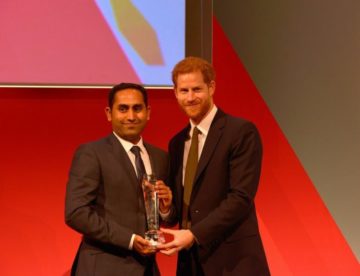TASK FORCE ON SCIENCE AT UNIVERSITIES OF THE MUSLIM WORLD Report launched on Oct 29, 2015 Download .pdf version of Nature Commentary on the Task Force Report (here) Online version (link) Download the Press Release...
By: Prof. Munir Nayfeh Nanotechnology, a field that attracts billions of dollars of research funding and thousands of scientists and engineers, has been hailed as the technology of the 21st century. With its revolutionary...
Compilation and Infographic by: localhost/muslim Editorial...
Infographic by: localhost/muslim Editorial...
By: Nidhal Guessoum; Member of localhost/muslim’s Task Force on Science and Islam “Perhaps more than anything else, the discussion between theology and science today is concerned with the presumption of naturalism; where...
By: Mohd Hazim Shah; Member of localhost/muslim’s Task Force on Science and Islam 1.0 Introduction In this paper I will deal with the question of science and religion, with reference to Islamic perspectives...

